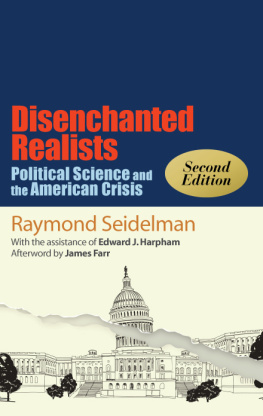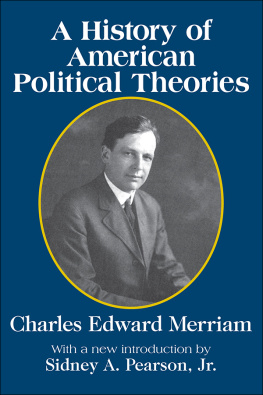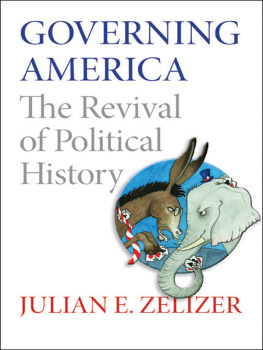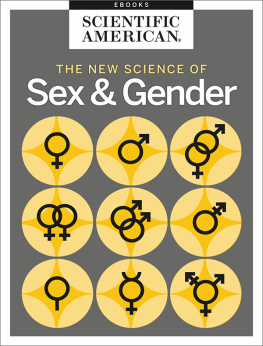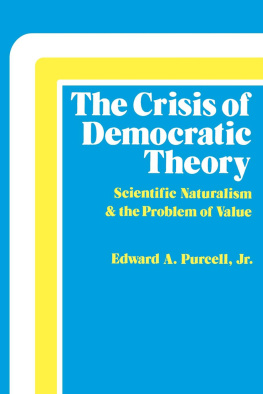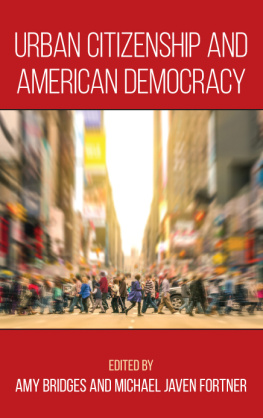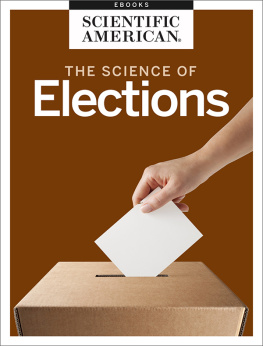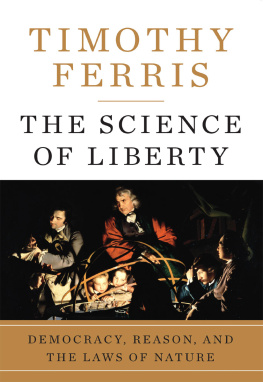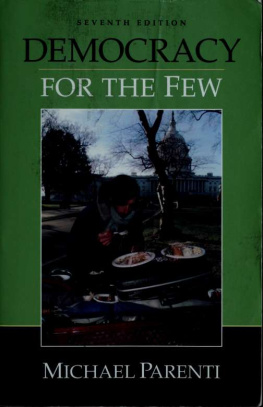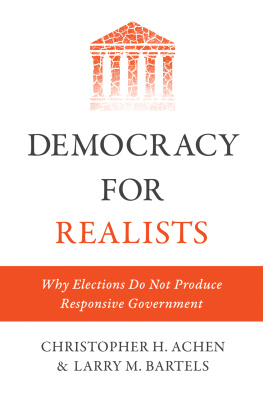Published by State University of New York Press, Albany
2015 State University of New York
All rights reserved
Printed in the United States of America
No part of this book may be used or reproduced in any manner whatsoever without written permission. No part of this book may be stored in a retrieval system or transmitted in any form or by any means including electronic, electrostatic, magnetic tape, mechanical, photocopying, recording, or otherwise without the prior permission in writing of the publisher.
For information, contact State University of New York Press, Albany, NY
www.sunypress.edu
Production, Ryan Morris
Marketing, Anne M. Valentine
Library of Congress Cataloging in Publication Data
Seidelman, Raymond.
Disenchanted realists: political science and the American crisis / Raymond Seidelman.Second edition.
pagescm
Includes bibliographical references and index.
ISBN 9781438455730 (hardcover : alk. paper)
ISBN 978-1-4384-5575-4 (ebook)
1. Political science United States History 20th century. 2. Liberalism United States History 20th century. I. Title.
JA84.U5S44 2015
320.510973dc23 | 2014017609 |
10 9 8 7 6 5 4 3 2 1
Foreword
Bruce Miroff and Stephen Skowronek
The authors of this foreword were long-time friends of Ray Seidelman and admirers of his most important scholarly work, Disenchanted Realists. Ray died in 2007 at age 56 after a four-year struggle with cancer. Subsequently, the political science editor at SUNY Press, Michael Rinella, suggested a second edition of Disenchanted Realists to bring Rays provocative and insightful history of the political science discipline to a new generation of political scientists. James Farr, a distinguished student of the history of political science and another friend of Rays, has written an afterword for this edition that situates the book among other disciplinary histories, assesses reactions to its arguments, and adds both a prequel and a sequel to the story it tells.
When Disenchanted Realists was published in 1985, it stood apart from prior and contemporaneous histories of political science. Other books on the history of the disciplineby Bernard Crick, Albert Somit and Joseph Tanenhaus, and David Ricciprimarily took a stand either in praise of or as a critique of the quest for a science of politics. Rays work was concerned with the relationship between the scientific impulse in political science and the desire to influence the real world of American politics. He wrote about prominent political scientists who envisioned the creation of a science of politics that would simultaneously be a science for politics. The purpose of political science, from their perspective, was not a detached body of objective truths but rather a growing repository of scientific knowledge that could reform and advance American democracy.
As the title of Rays book indicates, the hopes that a science of politics would elevate public life in the United States repeatedly met with frustration, and the disciplines political ambitions gave way over time to a narrower pursuit of science for its own sake. Ray was nothing if not a political realist himself, and his history was not intended to be uplifting, much less for cheerleading about the progress of political science. Nonetheless, Disenchanted Realists did not yield to cynicism; on the contrary, Ray admired most of the political scientists whose frustrations he depicted. The enduring power of his work is found not only in his insightful history of the disciplines struggle to combine science with democratic reform but equally in his insistence that his readers understand the nature of that struggle. Perhaps more than any other history of the discipline, Disenchanted Realists asks political scientists to reflect on the public meaning and significance of the work that they do.
Behind Disenchanted Realists lay Rays experiences as a political activist while an undergraduate at the University of California at Santa Cruz. Even more important in the genesis of the book were his graduate years at Cornell University. Ray entered graduate school in 1973. Political science was then in an unsettled state, with scholars questioning received paradigms (pluralism, behavioralism) and looking for new directions. The nation was in an unsettled state as well. The movement politics of the 1960s was waning, and the travails of the Nixon administration were about to shake the government to its foundations. Ray was none too certain of his course. He was full of questions about where scholars fit into the emerging political scene and where he himself fit within political sciences traditional divisions of labor.
Over the next several years, Ray took full advantage of the porous subfield boundaries he found at the Government Department at Cornell. He set out to study political philosophy with Isaac Kramnick but ended up writing a dissertation in comparative politics on Neighborhood Communism in Florence under the direction of Sidney Tarrow. In the interim, he worked on a manuscript about the study of American politics, producing the first draft of what would become Disenchanted Realists under the supervision of Ted Lowi. Whatever pressures there were at Cornell to specialize, Ray successfully resisted them. His reluctance as a graduate student to declare himself a political theorist, or a comparativist, or an Americanist, would continue through the rest of his career. Attracted to all three areas but reluctant to commit to one over the others, he was more naturally disposed than most to think broadly about his chosen field of study and to engage political science as a discipline with a project all its own.
During his first year at Cornell, Ray met two other political theory graduate students, Edward Harpham and Stephen Skowronek, whose intellectual agendas had much in common with his own. Each was, in his own way, interested in working through the relationship between scholarship and political life. The three rented a house together in the summer of 1974, and over the next two years, while cramming for general examinations, they sustained a discussion about the bearing of theory on practice, ideas on action, norms on empirics, intellectuals on power. They approached Ted Lowi with the idea of a reading course that would focus on how political scientists in America had grappled with these questions in the past, and he agreed on the condition that they produce joint work commensurate in scope to three extended term papers. They ended up with about 200 pages loosely organized around the problems faced by political scientists who had self-consciously sought to direct the discipline toward the advancement of American democracy.
Each of the housemates took something essential to his later intellectual development from that experience. Harpham went on to write about Adam Smiths insights into the formation of a political economy; Skowronek, about the professional reform impulse in American state-building. By the time Ray returned from Florence and his study of the Italian left, all three were fairly far along on their own trajectories. Ray was eager to revive the joint project, to rework and expand its thesis, but in looking back at the old manuscript with the detachment of a few years, it was evident that pulling together a book would be an entirely new undertaking. Harpham agreed to help, but could not commit to the project full time. It was clear that if the idea was to bear fruit, Ray would have to take the lead and make it his own.


